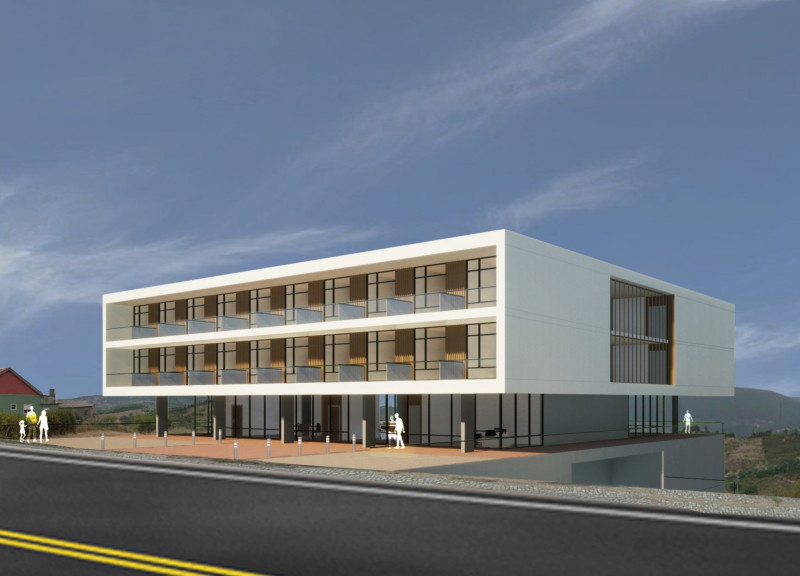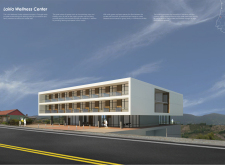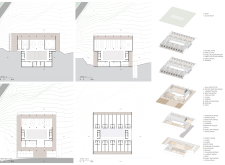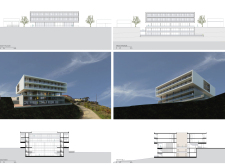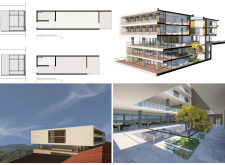5 key facts about this project
## Project Overview
The Lairia Wellness Center, situated in Portugal, serves as a residential facility focused on promoting health and well-being for residents, their families, and staff. The design integrates therapeutic elements to create an environment that supports healing and relaxation, emphasizing holistic living and engagement with both physical and mental wellness.
### Spatial Strategy
The wellness center features a diverse range of spaces that balance community interaction and individual privacy. Communal areas, such as workshops and dining rooms, are designed to facilitate social engagement, whereas private suites provide a sanctuary for rest and solitude. The architectural layout maximizes accessibility with wide corridors and strategically placed windows, enhancing natural light and allowing connectivity to the surrounding landscape. Each level includes outdoor terraces that encourage residents to experience nature directly, promoting activities that enhance overall well-being.
### Materiality and Sustainability
Material selection is integral to the aesthetic and functional aspects of the facility. Concrete serves as the structural backbone, offering strength and a minimalist appearance. Large glass panels are used extensively in the facade, enabling abundant natural light and visual continuity with outdoor views. Wood accents contribute warmth and comfort, aligning with the center's therapeutic mission. In addition, the incorporation of ceramic tiles ensures easy maintenance and supports a clean, modern aesthetic.
Sustainability is addressed through features like the organic garden, which not only provides a source of food but also offers therapeutic gardening opportunities for residents. This focus on integrating sustainable practices within the design reflects a commitment to promoting a healthier lifestyle and environmental awareness. The thoughtful arrangement of spaces and materials ultimately supports the center's objectives of enhancing well-being and community connectivity.


